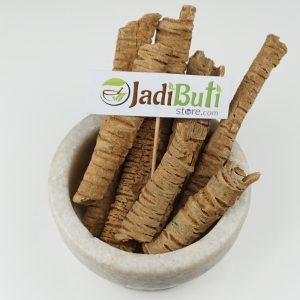Herbs
Showing 121–132 of 198 results
-
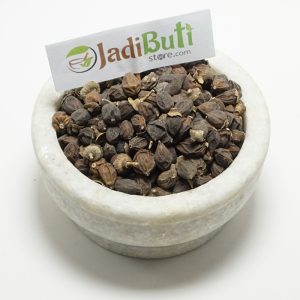
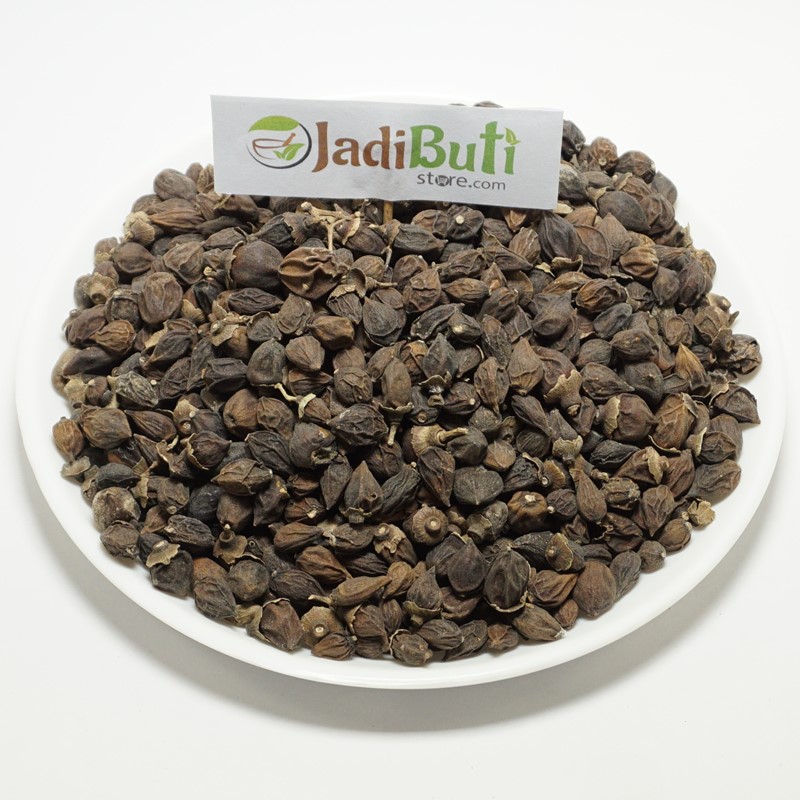
Lasoda spistan – लसोड़ा सपिस्तन – Sebesten – Cordia myxa
₹120.00 – ₹920.00Quick ViewOur Lasoda fruit is carefully handpicked and Natural-dried to ensure that it retains its natural flavor and nutritional value. It has a chewy texture and a hard seed in the center.
Lasoda fruit is believed to promote digestive health, respiratory health, anti-inflammatory properties, immunity boosting, and liver & heart health. It is also believed to have anti-aging properties and is used to promote wound healing and nervous system health.
Our Lasoda fruit is a valuable ingredient in natural remedies and can be used to make pickles and chutneys in Indian cuisine. It is also a great addition to smoothies, juices, and salads.
- Rasa (Taste): Lasoda fruit is believed to have a sour taste, which is known to stimulate digestion and help balance the doshas.
- Virya (Potency): Lasoda fruit is believed to have a cooling potency, which is helpful in reducing inflammation and calming Pitta dosha.
- Vipaka (Post-digestive effect): Lasoda fruit is believed to have a sweet post-digestive effect, which nourishes the body and helps to balance Vata dosha.
- Dosha effects: Lasoda fruit is believed to balance all three doshas, but especially Pitta and Vata doshas.
- Gunas (Qualities): Lasoda fruit is believed to have the following qualities – light, dry, and rough. These qualities are believed to be helpful in promoting digestion and reducing excess Kapha dosha.
- Prabhava (Special action): Lasoda fruit is believed to have a special action in Ayurveda as it is used to promote respiratory health, wound healing, and liver health.
Overall, the Ayurvedic properties of lasoda fruit make it a valuable ingredient in promoting overall health and well-being in Ayurvedic medicine.
-
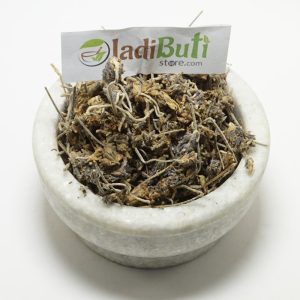
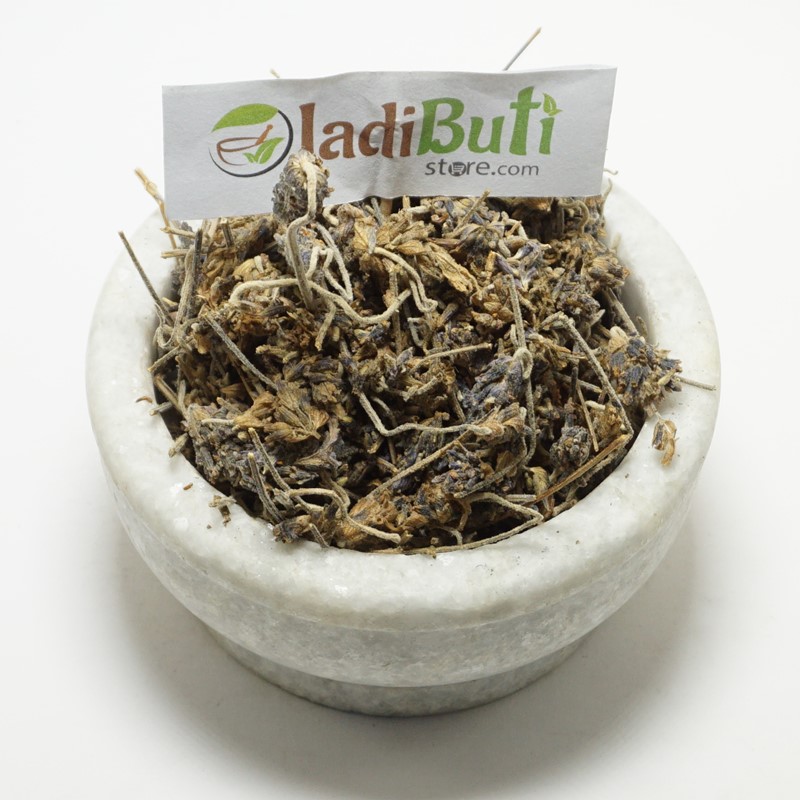
Lavender -UsteKhadoos – उस्तेखादूस – Arabian Lavender – Lavandula stoechas
₹170.00 – ₹1,785.00Quick ViewCommon name: Lavender, Ustukhuddus, Scientific name: Lavandula angustifolia
Parts used: Flowers, oil (These are dried flower)
Ayurvedic properties of lavender:
- Rasa (taste): Lavender has a bitter and pungent taste.
- Virya (energy): Lavender has a cooling or calming energy.
- Vipaka (post-digestive effect): Lavender has a pungent post-digestive effect.
- Guna (quality): Lavender has light and dry qualities.
- Dosha (effect on doshas): Lavender can balance pitta dosha, but may aggravate vata dosha in excess.
- Prabhava (special quality): Lavender is known for its calming and soothing effect on the mind and body.
Ayurvedic benefits of Lavender:
- Relaxation: Lavender is known for its calming and relaxing properties. It can help reduce stress, anxiety, and promote relaxation.
- Skin health: Lavender oil can help soothe and heal various skin conditions such as acne, eczema, and psoriasis. It has anti-inflammatory and antimicrobial properties that can help reduce inflammation and prevent infections.
- Sleep: Lavender can help promote sleep and improve the quality of sleep. It can also help with conditions such as insomnia and sleep apnea.
- Respiratory health: Lavender can help improve respiratory health and relieve conditions such as cough, cold, and asthma.
- Headache: Lavender can help relieve headaches and migraines. It has a soothing effect on the nervous system and can help reduce tension and pain.
- Digestive health: Lavender can help improve digestive health and reduce conditions such as bloating, gas, and nausea.
- Hormonal balance: Lavender can help regulate hormonal balance and reduce symptoms of PMS and menopause.
-
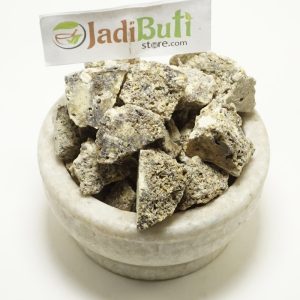
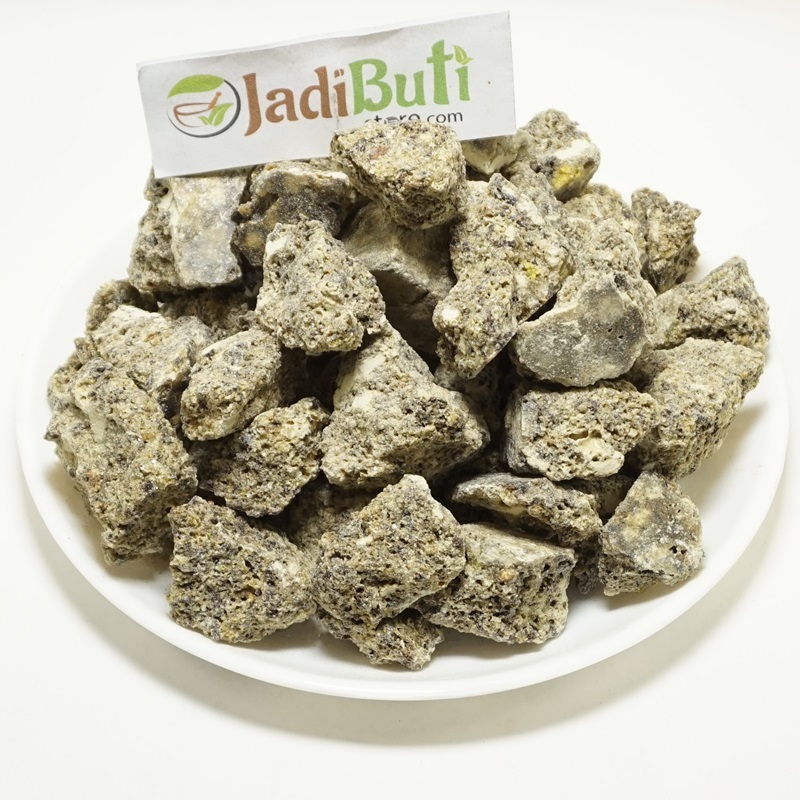
Loban (premium) – लोबान – Benzyl
₹170.00 – ₹1,300.00Quick ViewLoban is a type of resin that is obtained from the Boswellia tree. It is also known as frankincense or olibanum. In Ayurveda, loban is considered a potent herb with various health benefits. Here are some Ayurvedic properties and benefits of loban:
Ayurvedic Properties:
- Rasa (Taste): Pungent, Bitter, Astringent
- Virya (Energy): Heating
- Vipaka (Post-Digestive Effect): Pungent
- Guna (Qualities): Light, Dry
Ayurvedic Benefits:
- Respiratory Health: Loban has anti-inflammatory properties that can help to relieve respiratory conditions like asthma, bronchitis, and colds.
- Digestive Health: Loban is believed to stimulate digestion and improve appetite.
- Anti-inflammatory Properties: Loban has powerful anti-inflammatory properties that can help to reduce inflammation and pain in the body.
- Antiseptic Properties: Loban has antiseptic properties that can help to prevent infections and promote healing.
- Anxiety and Depression: The aroma of loban has a calming effect on the mind and can help to alleviate anxiety and depression.
- Spiritual Practice: Loban is often used in spiritual practices and rituals to purify the environment and promote a sense of peace and tranquility.
-


long (Organic) – लौंग – Clove – Syzygium aromaticum
₹280.00 – ₹2,300.00Quick ViewAyurvedic classification of clove :
Ayurvedic Property Ayurvedic Use Rasa (Taste) Katu (Pungent), Tikta (Bitter), Madhura (Sweet) Guna (Quality) Laghu (Light), Teekshna (Sharp), Sara (Unctuous), Ruksha (Dry) Virya (Potency) Ushna (Hot) Vipaka (Post-Digestive Taste) Katu (Pungent) Dosha (Effect on Humors) Balances Kapha and Vata Doshas, may aggravate Pitta Dosha in excess Dhatu (Tissue) Plasma, Blood, Muscle, Fat Srotas (Channel) Digestive, Respiratory, Circulatory Action Analgesic, Anti-inflammatory, Antioxidant, Anti-microbial, Carminative, Expectorant, Immune-stimulant, Warming Active Compound Description Health Benefits Eugenol A phenolic compound with a strong aroma and flavor. Antioxidant, anti-inflammatory, analgesic, and anti-microbial properties. May help improve dental health, reduce inflammation and pain, and support overall immune function. Flavonoids A group of plant pigments with antioxidant and anti-inflammatory properties. May help reduce the risk of chronic diseases such as heart disease and cancer, and support overall immune function. Tannins A type of polyphenol with astringent properties. May help reduce inflammation and pain, and support healthy digestion. Sesquiterpenes A group of aromatic compounds with anti-inflammatory and anti-microbial properties. May help reduce inflammation, support healthy immune function, and protect against infections. -


Mahua(Mahuya) – महुआ – Pongamia – Madhuca indica
₹90.00 – ₹690.00Quick ViewMahua | Botanical Name: Madhuca longifolia
Other Names: Indian butter tree, Madhuca, Mahwa
Ayurvedic Properties of Mahua Description Rasa (Taste) Sweet, Bitter Virya (Energy) Cooling Vipaka (Post-Digestive Effect) Sweet Guna (Qualities) Light, Dry Ayurvedic Benefits:
- Digestive health
- Respiratory health
- Anti-inflammatory properties
- Skin health
- Antioxidant properties
- Immunity boosting
- Antimicrobial properties
- Anti-diabetic properties
- Cardiovascular health
- Nervous system health
- Anticancer properties
- Wound healing
- Reproductive health
-


Majith – Manjistha – Indian Madder – Rubia cordifolia
₹140.00 – ₹1,170.00Quick ViewManjistha is classified as a bitter, astringent, sweet, and cooling herb. It is believed to have a balancing effect on the Pitta and Kapha doshas, while increasing Vata dosha.
.
Ayurvedic classification of Manjistha (Rubia cordifolia):
Ayurvedic Classification Description Rasa (taste) Astringent, bitter, and sweet Guna (qualities) Heavy, dry, and cold Virya (potency) Cooling Vipaka (post-digestive effect) Sweet Dosha effect Pacifies Pitta and Kapha doshas Karma (actions) Blood purifier, detoxifying, diuretic, anti-inflammatory, and antioxidant Dhatu (tissue) affinity Works primarily on the blood and lymphatic tissues Srotas (channel) affinity Works primarily on the circulatory and lymphatic channels Prabhava (special effect) Purifies and cools the blood, supports healthy skin, and promotes overall detoxification Active compounds and their benefits found in manjistha (Rubia cordifolia):
Active Compound Benefits Anthraquinones (alizarin, purpurin, and munjistin) Anti-inflammatory, antioxidant, and antimicrobial properties Tannins Anti-inflammatory, antioxidant, and wound-healing properties Flavonoids (quercetin, kaempferol, and rutin) Anti-inflammatory, antioxidant, and anti-cancer properties Xanthones Anti-inflammatory, antioxidant, and anti-cancer properties Glycosides Cardio-protective, hepatoprotective, and immune-boosting properties Betaine Liver-protective and anti-inflammatory properties -
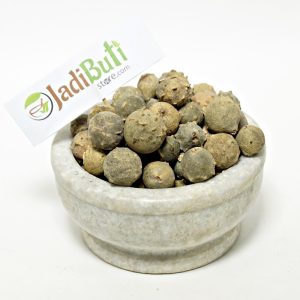
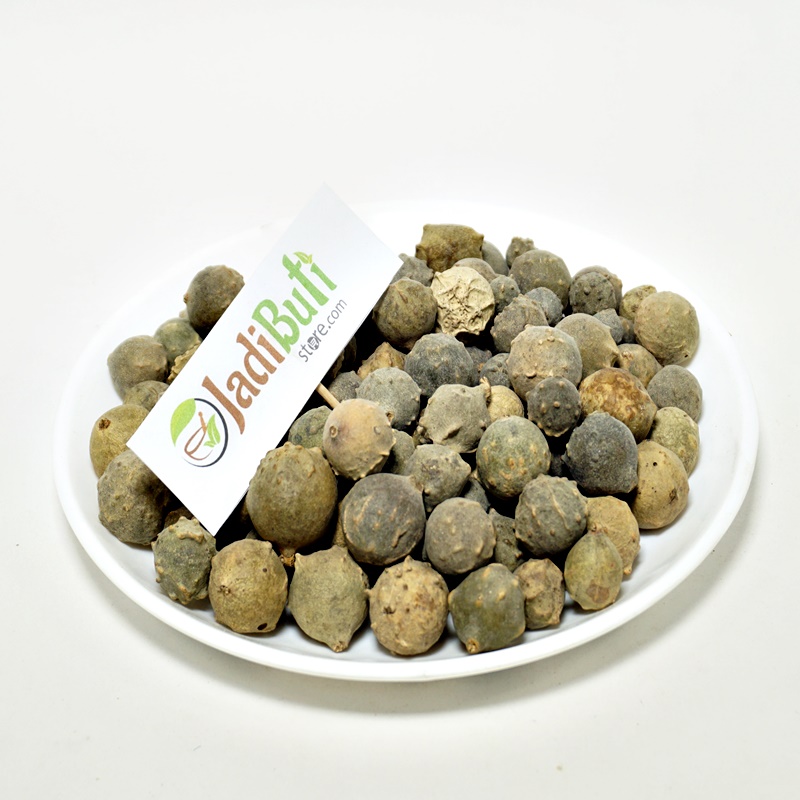
Majuphal – माजूफल – Gallnut – Quercus infectoria
₹220.00 – ₹1,710.00Quick ViewMajufal | Oak Gall | Gallnut
Scientific Name : Quercus infectoria.
Ayurvedic classification of Gallnut (Quercus infectoria):
Ayurvedic Classification Description Rasa (taste) Astringent Guna (qualities) Light, dry, piercing, and rough Virya(potency) Cooling Vipaka (post-digestive effect) Pungent Dosha effect Balances Pitta and Kapha doshas Karma (actions) Astringent, anti-inflammatory, anti-bacterial, anti-fungal, anti-viral, and styptic Dhatu (tissue) affinity Works primarily on the blood, plasma, and reproductive tissues Srotas (channel) affinity Works primarily on the circulatory, reproductive, and respiratory channels Prabhava (special effect) Helps to promote wound healing and prevent infection Active compounds and their benefits found in gallnut:
Active Compound Benefits Tannins Antioxidant, anti-inflammatory, and astringent properties Gallic acid Antioxidant, anti-inflammatory, and antimicrobial properties Ellagic acid Antioxidant, anti-inflammatory, and anticancer properties Quercetin Antioxidant, anti-inflammatory, and antihistamine properties Camphor Analgesic, anti-inflammatory, and antimicrobial properties Terpenoids Anti-inflammatory, antinociceptive, and antimicrobial properties -
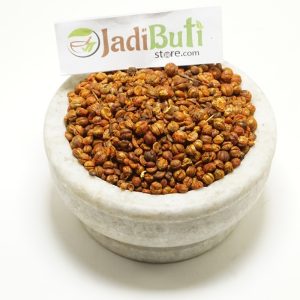
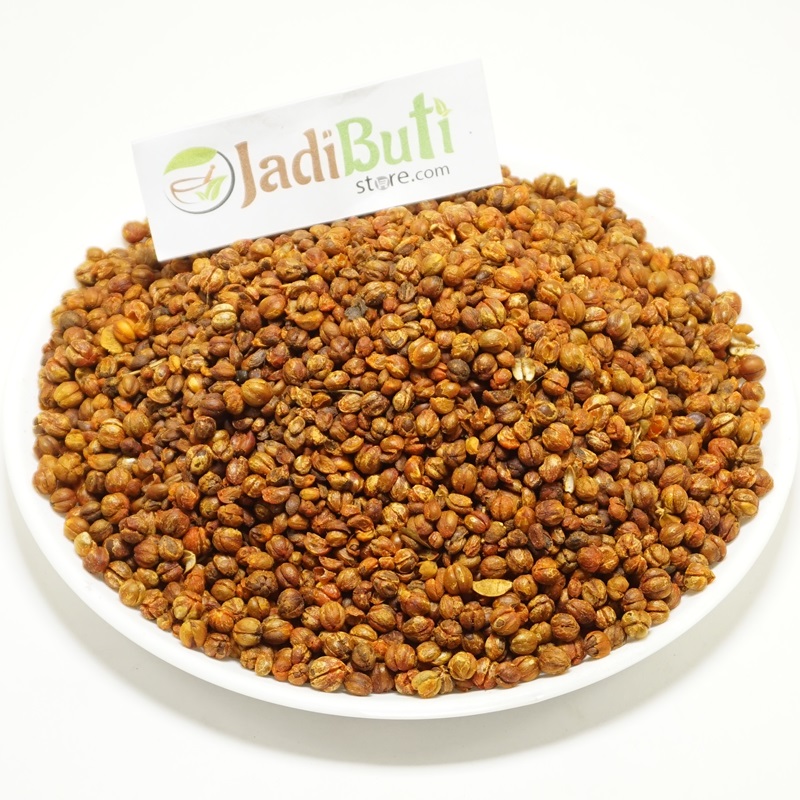
Malkangni – मालकांगनी – Black oil Tree – Celastrus paniculatus
₹760.00 – ₹6,290.00Quick ViewMalkangni seeds, Intellect Tree seeds
Scientific name: Celastrus paniculatus | Plant family: Celastraceae
Ayurvedic classification: | Parts used: Seeds
****** ***** Rasa (Taste) Tikta (Bitter), Katu (Pungent) Guna (Quality) Laghu (Light), Tikshna (Sharp) Virya (Potency) Ushna (Hot) Vipaka (Post-digestive effect) Katu (Pungent) Dosha Effect Balances Vata and Kapha doshas, increases Pitta dosha Action (Karma) Medhya (Nervine tonic), Vrushya (Aphrodisiac), Balya (Increases strength), Deepana (Digestive stimulant), Pachana (Digestive), Shothahara (Anti-inflammatory), Sangrahi (Astringent), Hridya (Heart tonic) -
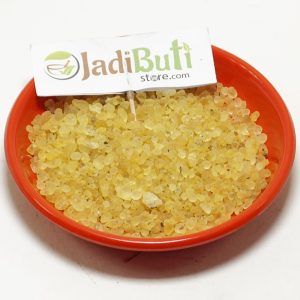
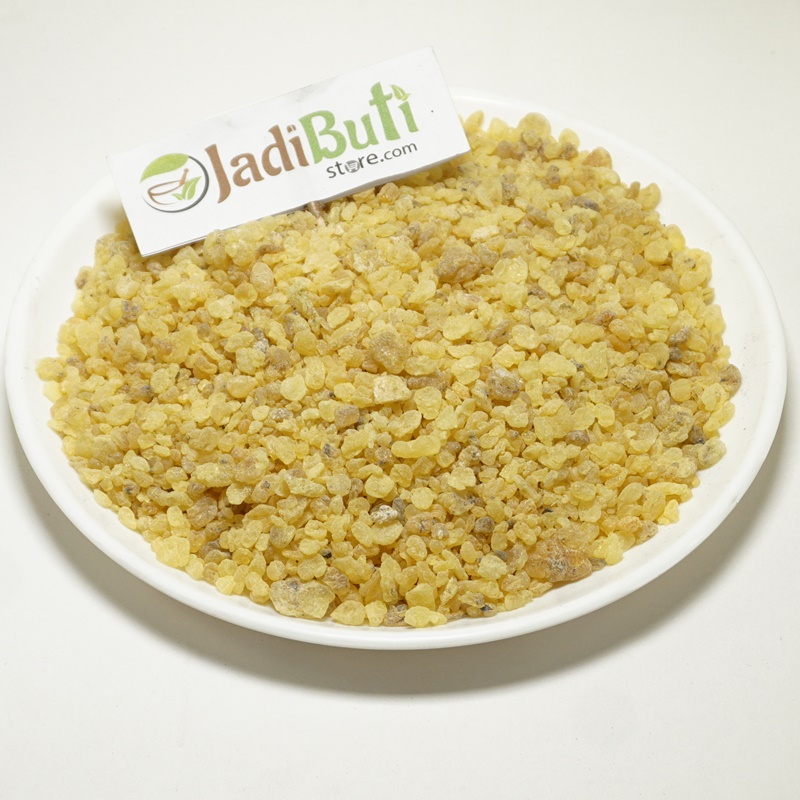
Mastagi Kota – मस्तगी कोटा – Mastic Tree – Pistacia lentiscus
₹650.00 – ₹8,695.00Quick ViewName: Mastic gum , Mastagi Kota | Other names: Mastiha, Mastica, Mastagi, Mastaki
Scientific name: Pistacia lentiscus | Plant family: Anacardiaceae
Parts used: Resin
Uses: Digestive health, oral health, anti-inflammatory effects, antioxidant properties, skin health
Dosage: There is no standard dosage for mastic gum, but supplements typically contain 500-1,000 mg per day. It’s best to follow the manufacturer’s instructions or consult with a healthcare provider for personalized dosing recommendations.
-


Mastagi Rumi – मस्तगी रूमी – Mastic Gum – Pistacia lentiscus
₹950.00 – ₹26,785.00Quick ViewOur mastic gum is carefully harvested and processed to ensure maximum purity and potency, providing you with a natural and effective way to support your overall health and wellbeing.
Our mastic gum is rich in antioxidants and has been shown to have powerful anti-inflammatory and antimicrobial properties. It may help to promote digestive health, support oral health, and improve respiratory function. Our mastic gum is also known for its potential cholesterol-lowering effects and blood sugar regulating properties, making it a great supplement for those looking to maintain healthy cholesterol and blood sugar levels.Our mastic gum is 100% natural and free from any synthetic additives, making it a safe and healthy supplement for daily use. mastic gum is gluten-free, non-GMO, and suitable for vegans and vegetarians.
-
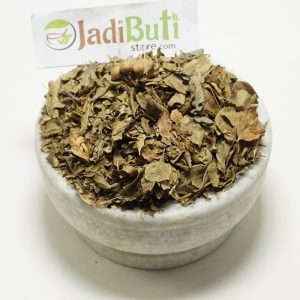
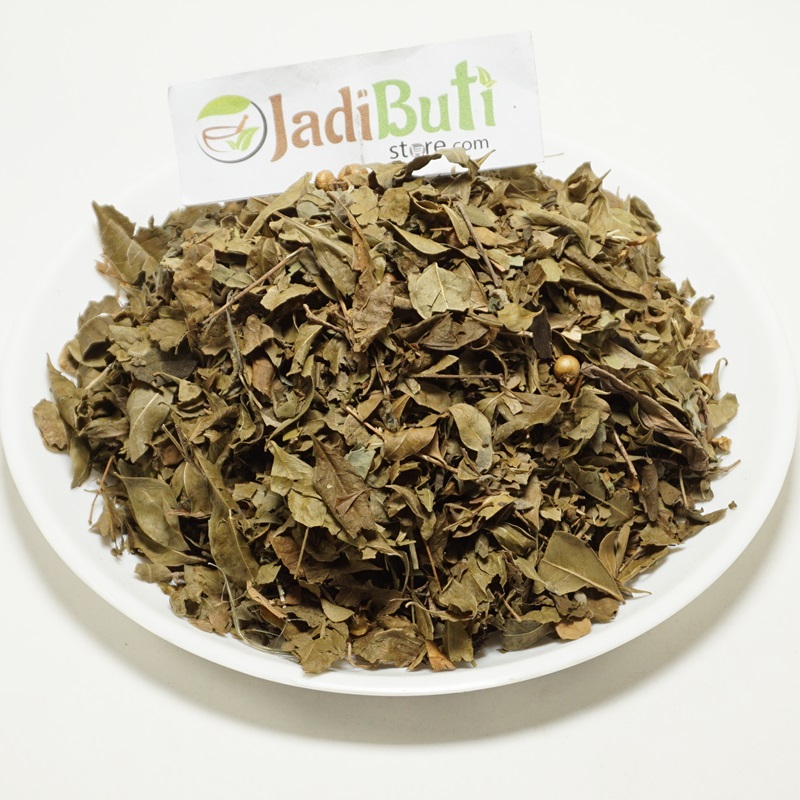
Mehndi Patta – मेहँदी पत्ता – Lawsonia inermis
₹90.00 – ₹720.00Quick ViewMehandi, Henna | Botanical name: Lawsonia inermis | Family: Lythraceae
Parts used: Leaves, bark, and roots | This product is Organic Henna Leaves Dried
Native region and distribution: Mehandi is native to North Africa, the Middle East, and South Asia. It is now widely cultivated in tropical and subtropical regions around the world.
Ayurvedic Classification Properties Guna (qualities) Cooling, astringent, bitter Rasa (taste) Bitter Vipak (post-digestive effect) Pungent Dosha effect Pacifies pitta and kapha doshas, but can aggravate vata when used in excess Dhatu (tissue) effect Acts mainly on the rakta dhatu (blood tissue) and also on the mamsa dhatu (muscle tissue) Srotas (channel) effect Acts mainly on the raktavaha srotas (blood channels) and also on the annavaha srotas (digestive channels) Health benefits:
- Cooling and astringent properties make it useful for treating conditions related to excess heat, such as fever, inflammation, and hot flashes.
- Bitter taste and digestive properties make it useful for improving digestion and eliminating toxins from the body.
- Can be used topically to promote healthy skin and hair.
- Has been traditionally used for its natural dyeing properties.

